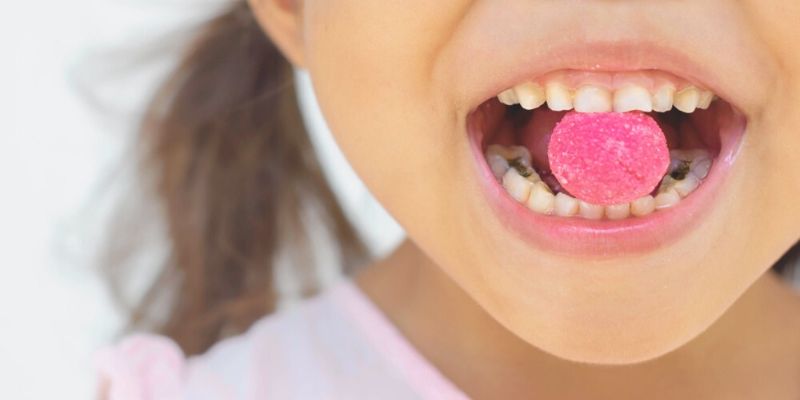Is Sugar the Main Cause of Tooth Cavities?

When it comes to oral health, the word "sugar" often rings alarm bells, especially for parents concerned about their children's teeth. But is sugar truly the main culprit behind tooth cavities? While sugar certainly plays a significant role, it's essential to understand how cavities form and the various factors that contribute to tooth decay.
In this blog, we will explain the connection between sugar and cavities and discuss how to protect your child's teeth with effective dental care.
Understanding How Cavities Form
Cavities, or dental caries, develop when the enamel—the tooth's hard outer layer—starts to break down. This process is triggered by the interaction between bacteria in the mouth and certain foods, particularly those high in sugar. When sugar is consumed, it reacts with the bacteria on the surface of the teeth, creating acids. These acids gradually erode the enamel, leading to cavities.
However, while sugar is a significant factor, it's not the only one. Other contributors include poor oral hygiene, a lack of fluoride, and the frequency of snacking. Understanding this broader picture is crucial in preventing cavities and ensuring your child's oral health.
The Role of Sugar in Tooth Decay
- Sugar Feeds Harmful Bacteria: Sugar provides an energy source for harmful bacteria in the mouth. When your child consumes sugary drinks or foods, these bacteria multiply rapidly, producing acids that attack the enamel. The more sugar consumed, the more acid is produced, increasing the risk of cavities.
- Sticky Sugary Foods Are Especially Harmful: Foods like candy, dried fruits, and caramel tend to stick to the teeth, prolonging their exposure to sugar and acids. This extended exposure increases the likelihood of enamel erosion and cavity formation. Sticky foods can be challenging to remove, especially in children who may not brush and floss thoroughly.
- Frequent Snacking Can Worsen the Effects: Snacking throughout the day, especially on sugary treats, can keep acid production ongoing, giving the teeth little time to recover. Frequent snacking means your child's teeth are under constant attack, leading to a higher risk of cavities.
Is Sugar the Only Cause?
While sugar is a key player, cavities can also result from other factors:
- Poor Oral Hygiene: Inadequate brushing and flossing allow plaque—a sticky film of bacteria—to build up on the teeth. Plaque itself can lead to cavities, even in the absence of sugar. Ensuring your child brushes twice a day and flosses daily is essential to remove plaque and prevent decay.
- Lack of Fluoride: Fluoride is a mineral that helps strengthen tooth enamel, making it more resistant to acid attacks. Without sufficient fluoride, either from drinking water or toothpaste, your child's teeth may be more vulnerable to cavities. Regular use of fluoride toothpaste and treatments can provide added protection.
- Dry Mouth: Saliva plays an important role in neutralizing acids and washing away food particles. If your child has a dry mouth, perhaps due to certain medications or mouth breathing, the reduced saliva flow can make their teeth more susceptible to decay.
Preventing Cavities in Kids
To protect your child's teeth, it's important to address all potential causes of cavities, not just sugar consumption:
- Limit Sugary Foods and Drinks: Encourage your child to consume fewer sugary snacks and drinks. Choose healthier options, such as fruits, vegetables, and water. When they have sweets, ensure they brush their teeth afterward to minimize acid production.
- Promote Good Oral Hygiene: Teach your child proper brushing and flossing techniques, and supervise their oral care routine until they can manage it independently. Using fluoride toothpaste and visiting the dentist regularly for cleanings and check-ups are also key steps in preventing cavities.
In summary, while sugar is a major contributor to tooth cavities, it's not the sole cause. Cavities result from a combination of factors, including poor oral hygiene, lack of fluoride, and frequent snacking. By understanding the role of sugar and implementing comprehensive preventive measures, you can help protect your child's teeth from decay.
For parents concerned about their child's comfort, seeking painless dental treatment can schedule a consultation at Chintamani Dental Home for painless dental treatment for kids in Karad. We ensure that your child’s oral health remains in top condition, allowing them to enjoy a bright, healthy smile.
